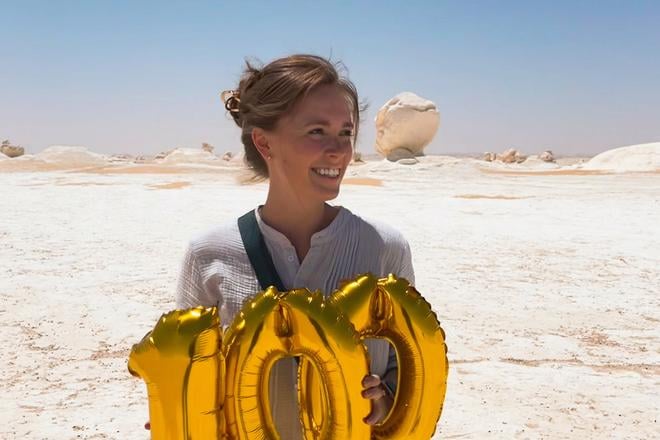In my 20s, I set out to visit 100 countries. With half the world behind me, I’m now applying for citizenship in one I’ve never set foot in: Slovakia.
When I graduated from university in 2019 and became a digital nomad — traveling full-time and freelance writing — my dad had little say in where I went. He worried about my safety as a solo female traveler, especially when political tensions flared. But the only place he explicitly asked me not to go wasn’t out of fear. It was because he wanted to go too: Slovakia, the land of our ancestors. “If you go to Slovakia,” he told me, “I want to go with you.”
So, I waited. And as my country count crept past 100, Slovakia rose toward the top of my list. At a certain point, traveling the world means circling back to your own history.
In fall 2024, I began researching dual citizenship. My husband and I were trying — unsuccessfully, as it turned out — to relocate to Hong Kong for his job. Despite years on the road, I had never lived outside the United States, and I found myself drawn to any path that might expand my options.
I remembered a university friend with two passports. His mother was German, his father American. I’d envied him at the time, but now the idea of living and working in the European Union on the strength of my ancestry seemed almost miraculous.
Growing up, I was told I was 5/8 Irish, 3/8 Slovak, and 1/8 Lithuanian. All EU countries. Ireland was out: too many generations removed. Lithuania offered no citizenship-by-descent program. But Slovakia did — a new one, and one I might qualify for.
That’s how I found myself in a Facebook group for people like me, searching for ancestral connections that could translate into legal rights. The motivations varied — identity, politics, retirement — but the common thread was the same: a desire to root ourselves somewhere our families once belonged.
I started gathering records on my paternal great-grandparents from online archives. Eventually, I hit a dead end. That’s when the group pointed me to a team of lawyers in Bratislava, who tracked down documents in Slovakia to pair with the ones I’d unearthed in the United States. Together, they began weaving the paper trail of my application.
As I inch closer to submitting, I’ve been reflecting on why I want citizenship in a place I’ve never visited. The roots of my interest run deep. This process has prompted meaningful conversations with my parents and answered questions about the origins of my identity that I might never have uncovered otherwise.
And yes: we finally booked the trip. In January 2026, my dad and I will go to Slovakia together.
Five years ago, I would have said I traveled to learn about other countries and cultures. But what I’ve learned most is about myself. Slovakia’s citizenship by descent program has offered me the greatest journey of my lifetime.


